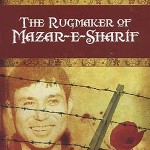The Significance of the Chorus in the Prologue
The Chorus was played by a single actor, whose purpose was to explain and comment on the action of the play. He is not a character and has no personality.
This opening speech by the Chorus serves as an introduction to Romeo and Juliet. We are provided with information about where the play takes place, and given some background information about its principal characters.
He simply tells us that we are now in Verona, and that this is a city divided by civil war between 2 noble families. Their quarrel is an old one, an ‘ancient grudge’. We never learn its cause, it seems to have become a habit for the Capulets and Montagues to hate each other. However, if we cannot know the cause of the quarrel, we can be warned of its cure.
The words of the Chorus would be used by Shakespeare to silence the audience and settle them into an appropriate mood for the first scene.
Sonnet = a 14 line poem
Line # |
Sonnet Prologue |
Explanation |
| 1 | Two households, both alike in dignity, | 2 families of nobility ie. same social status |
| 2 | In fair Verona, where we lay our scene, | Where the play is set in Verona |
| 3 | From ancient grudge break to new mutiny, | Old violent quarrel that has been long standing |
| 4 | Where civil blood makes civil hands unclean. | Civil meaning belonging to fellow citizens where the conflict has been bloody |
| 5 | From forth the fatal loins of these two foes | Bred from deadly vital organs of both parents |
| 6 | A pair of star-cross’d lovers take their life; | Ill-fated lovers appear from these 2 quarrelling families |
| 7 | Whose misadventured piteous overthrows | Unfortunate disasters are mended by the 2 lovers |
| 8 | Do with their death bury their parents’ strife. | Their respective children’s death brings each family together |
| 9 | The fearful passage of their death-mark’d love, | The course of the lovers love for each other is doomed to death |
| 10 | And the continuance of their parents’ rage, | The parents are enraged at the deaths |
| 11 | Which, but their children’s end, nought could remove, | But only the deaths of their children can stop the conflict and strife of the families |
| 12 | Is now the two hours’ traffic of our stage; | The business lasting 2 hours |
| 13 | The which if you with patient ears attend, | The audience must watch with expectation |
| 14 | What here shall miss, our toil shall strive to mend. | To fulfil the prophecy of this Prologue as Romeo & Juliet will certainly die |
The Obvious Function of the Prologue
The obvious function of the Prologue as introduction to the Verona of Romeo and Juliet can obscure its deeper, more important function. The Prologue does not merely set the scene of Romeo and Juliet, it tells the audience exactly what is going to happen in the play. The structure of the play itself is the fate from which Romeo and Juliet cannot escape.
“Star-crossed Lovers”
The Prologue refers to an ill-fated couple with its use of the word “star-crossed,” which means, literally, against the stars. Stars were thought to control people’s destinies. But the Prologue itself creates this sense of fate by providing the audience with the knowledge that Romeo and Juliet will die even before the play has begun. The audience therefore watches the play with the expectation that it must fulfill the terms set in the Prologue.

